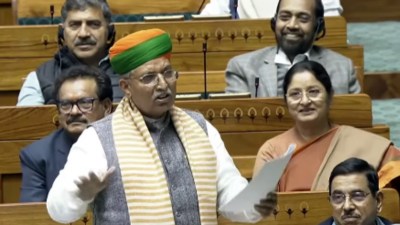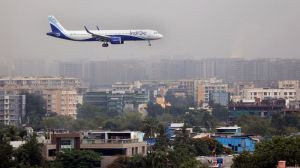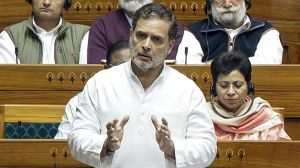The Tejas Story tells of ego clash between IAF & DRDO
Ego clashes between the officials of DRDO and the IAF, that continues even today, have played a major role in delaying...

Ego clashes between the officials of DRDO and the IAF, that continues even today, have played a major role in delaying the ‘Tejas’ indigenous fighter aircraft project by over a decade, claims a new book written by a former senior Air Force officer.
The Tejas Story, authored by Air Marshal P Rajkumar (Retd), who headed the project for nine years till 2003, traces the history of the Light Combat Aircraft over the past two decades and points to several “personality based” clashes among the officials of IAF, DRDO and the Hindustan Aeronautics Limited that “continued to dog the programme”.
The book also points out that as early as 1994, the Air Force was informed that the project was running behind time and the indigenous fighter would not be available for induction till the next decade. However, this warning seems to have been ignored as the Defence ministry woke up to the problem of dwindling IAF squadrons only this year by floating global tenders for 126 medium multi-role fighters.
Air Marshal Rajkumar, who was heading the project when the aircraft took its first flight, has written that a clash of egos between DRDO and IAF in the beginning itself over the choice of a development partner for the project never got sorted out and came in the way of the project.
“The main issue was that the IAF was not too keen on DRDO going to the Americans for development partnership as it had been bitten by US sanctions in the past. The Air Force wanted to work with France on the project,” Rajkumar said, in a telephonic interview with The Indian Express. In fact, Rajkumar writes that since the beginning of the project, IAF was skeptical of the time-frame of the project.
Rajkumar has revealed that HAL — the premier aircraft development agency of the country — also had serious differences with DRDO’s Aeronautical Development Agency, which “persist to this day to the incalculable detriment of the project”, for not being involved in the decision-making process.
This friction resulted in unnecessary delays on more that one occasion. Rajkumar refers to problems during the ‘test rig’ stage of the programme in the mid 1990s that dragged for over two years. “The problem was the attitude of the corporate management of HAL. Under chairman RN Sharma, the LCA programme was given step-motherly treatment. Till he retired (in 1997), things did not change,” the book says.
Rajkumar also says that the LCA programme was further delayed earlier this decade after the government gave the go ahead for developing an Intermediate Jet Trainer (IJT) that led to a “diversion of trained manpower” from the project.
“The same group of 100 odd people working on the LCA project had to work in the IJT also. There was a division of labour. The HAL too gave the IJT a little more emphasis as it was seen as their own project,” Rajkumar told Express.
The LCA, which is running a decade behind time, is now expected to join service by 2010 and will be fully operational only two years after the date of induction.
- 01
- 02
- 03
- 04
- 05































